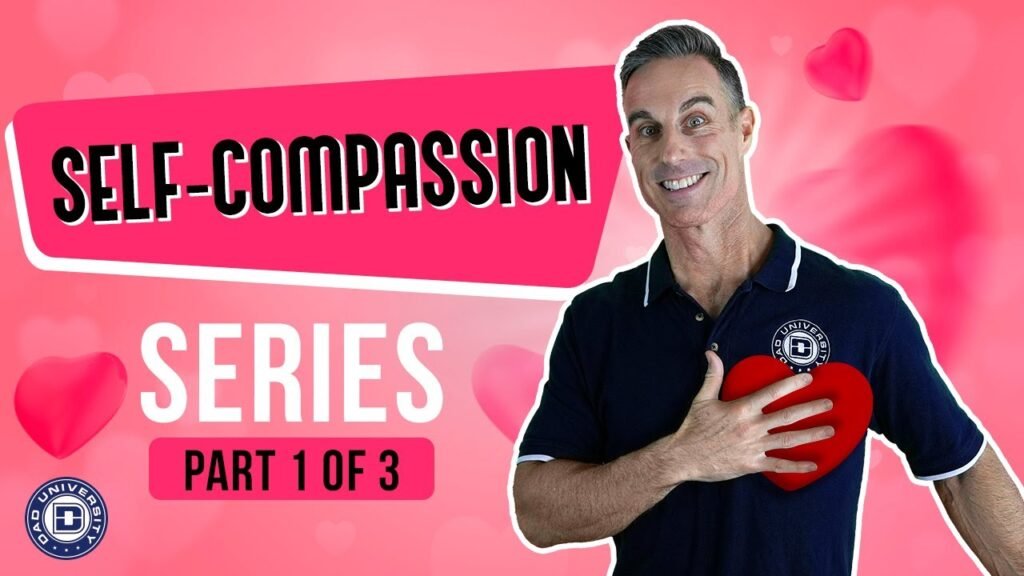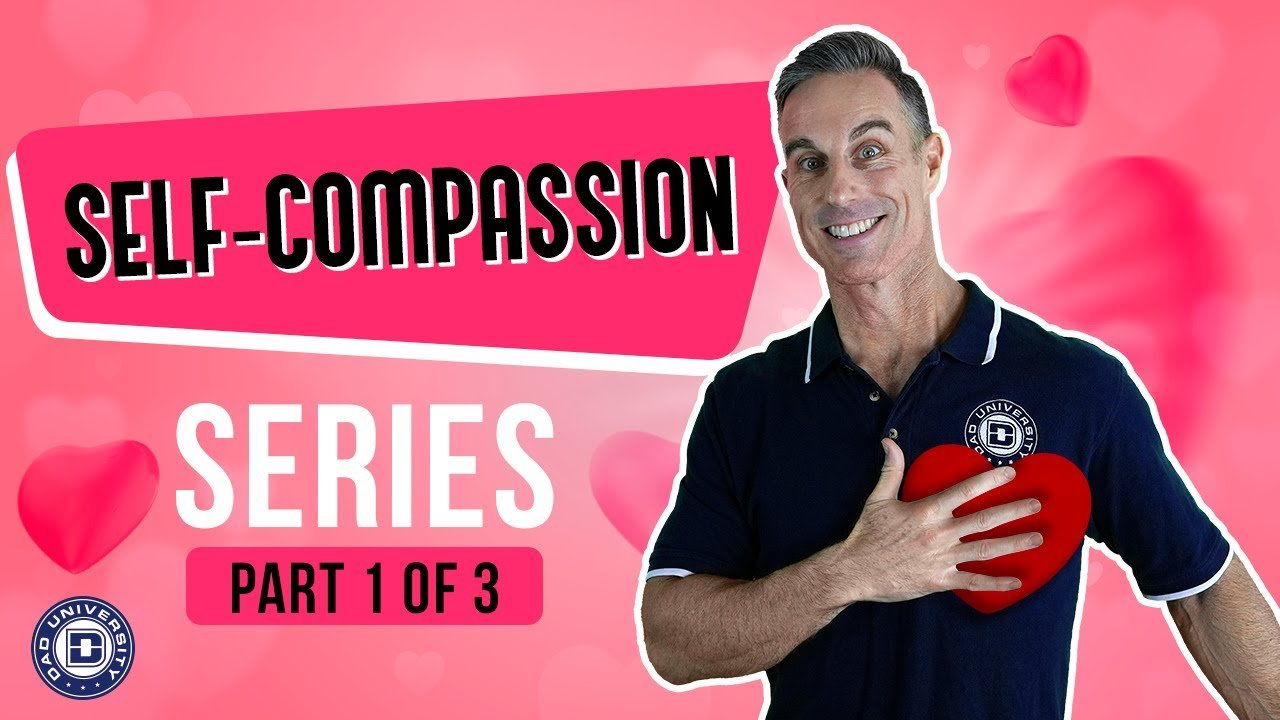In “What is Self-Compassion?” video series, Jason from Dad University provides an insightful understanding of self-compassion and its importance in our lives. After being inspired by a TedTalk by Dr. Kristin Neff on self-compassion, Jason realized that he was lacking self-compassion in his own life. This video, part 1 of a 3-part series, explores the concept of self-compassion and addresses common issues such as self-criticism, feeling inadequate, judging oneself, and striving for perfectionism. It emphasizes the need for more mindful self-compassion in a world where we often have compassion for others but struggle to show the same kindness and understanding to ourselves.
Throughout the video, Jason explains how self-compassion is similar to having compassion for others and shares insights from Dr. Neff, an expert on self-compassion. He highlights the importance of recognizing our own suffering and offers practical ways to practice self-compassion. With honesty and transparency, Jason acknowledges his own journey towards self-compassion and invites viewers to join him in exploring the significance of self-compassion, especially for fathers. Part 2 and 3 of the series will delve into why self-compassion is crucial as a dad and share various methods to cultivate self-compassion.

What is Self-Compassion?
Self-compassion is the practice of treating yourself with kindness, understanding, and compassion in times of suffering or difficulty. It involves recognizing your own pain and suffering, and responding to it with empathy and care, just as you would for a loved one. Self-compassion is the ability to extend the same level of compassion and understanding towards yourself as you would towards others.
Definition of Self-Compassion
Compassion is typically associated with having empathy and care for others, but it is also an important concept when it comes to caring for ourselves. The definition of compassion is “suffering together,” meaning that when we see someone in pain, we are motivated to help reduce or eliminate that suffering. Similarly, self-compassion is about recognizing and acknowledging our own suffering, and responding to it with care and understanding.
There is a fundamental difference between compassion for others and self-compassion. With compassion for others, we feel empathy and warmth towards someone else’s pain or suffering. We want to help alleviate their suffering and provide comfort. Self-compassion entails the same feelings and actions, but directed towards ourselves. It involves recognizing our own suffering and responding to it with kindness and understanding.
Importance of Self-Compassion
Self-compassion is important because it can have a profound impact on our overall well-being and personal growth. When we lack self-compassion and engage in self-criticism and harsh judgment, it can have detrimental effects on our mental and emotional health. It can lead to feelings of inadequacy, low self-esteem, and increased stress and anxiety.
Conversely, practicing self-compassion can be a powerful tool for personal growth and mental well-being. It allows us to be kind and forgiving towards ourselves, which in turn promotes resilience and the ability to manage difficult emotions. It also provides a solid foundation for self-care and self-improvement, as it allows us to recognize our own needs and address them with compassion and understanding.
Dr. Kristin Neff’s Work on Self-Compassion
Dr. Kristin Neff, an associate professor of educational psychology at the University of Texas at Austin, is a leading expert on self-compassion. She has dedicated her life to studying and promoting self-compassion as a valuable practice for individuals.
Dr. Neff’s website, self-compassion.org, offers a wealth of resources, information, and self-compassion practices. It also features a free self-compassion test that allows individuals to assess their own level of self-compassion.
Dr. Neff’s work has been instrumental in raising awareness about the importance of self-compassion and providing practical tools and techniques for cultivating it in our lives.
Why Self-Compassion is Important as a Dad
Fatherhood comes with its unique set of challenges and responsibilities. As a dad, it is important to have self-compassion and extend the same level of care and understanding to yourself as you would to your children. Lack of self-compassion can have a negative impact on parenting, leading to increased stress, emotional strain, and difficulties in maintaining healthy relationships with our children.
By practicing self-compassion, dads can improve their father-child relationships. It allows you to approach parenting from a place of kindness and understanding, rather than judgment and criticism. It also helps dads maintain their own mental well-being and emotional resilience, which are essential for being present and supportive fathers.
Ways to Practice Self-Compassion
Practicing self-compassion is a skill that can be developed over time. Here are some ways to cultivate self-compassion in your life:
-
Understanding personal triggers and patterns of self-criticism: Take time to reflect on the situations or thoughts that trigger self-criticism and judgment. Recognize these patterns and work on changing the narrative towards self-kindness and understanding.
-
Developing self-compassionate self-talk: Replace negative self-talk with kind and supportive words. Treat yourself with the same level of kindness and understanding you would offer to a loved one.
-
Cultivating self-kindness and acceptance: Embrace your imperfections and shortcomings with kindness and acceptance. Remember that everyone makes mistakes and that you are deserving of compassion and forgiveness.
-
Practicing mindfulness and self-awareness: Pay attention to your thoughts, emotions, and physical sensations without judgment. Mindfulness can help you become more aware of your own needs and respond to them with compassion.
-
Seeking support and resources for self-compassion: Explore books, workshops, and online resources that can help you deepen your understanding and practice of self-compassion. Connect with others who are also working on cultivating self-compassion and share your experiences and insights.
Conclusion
Self-compassion is a powerful practice that can have a transformative effect on our lives. By treating ourselves with kindness, understanding, and compassion, we can improve our mental well-being, build resilience, and foster healthier relationships with ourselves and others. It is an essential tool for personal growth and an important aspect of being a present and compassionate dad. So, start cultivating self-compassion today and watch as it transforms your life for the better.

